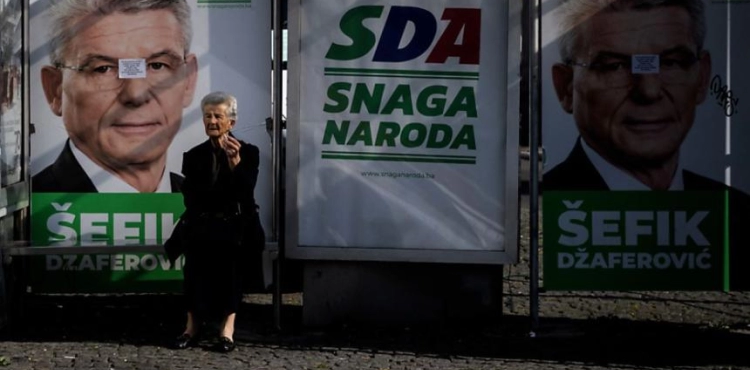Bosnia _ Agencies
Bosnia and Herzegovina is on Sunday voting for a tripartite Presidential council that manages the impoverished Balkan country, whose politicians are once again betting on ethnic sentiment before the general Elections.
The country in southern Europe continues to serve as a mosaic among its three main elements, as pictured drew after the 1992-1995 war, and the Bosniacs elect the three members of the Presidency--a Bosniak (muslim), a Croat (christian Catholic) and a Serbian (christian orthodox).
Armin bugaric, a 45-year-ago businessman in sarajevo, predicted that he would get as in 2014, "where nationalists will win again and nothing will change."
In Banja luka, the largest Serb city in bosnia, Danica odovic, 47, A librarian, said she chose to "change not because I think others are better, but just for change."
After 25 years of conflict, which has left 100,000 people dead, the most prominent candidates have been on the national factor, especially Serbian Milorad Dodić and Croatian Dragan covic, as well as Bosnian Candidates.
As the country faces a long list of economic crises, many voters say they have lost faith in a political class accusing them of provoking fear and nationalism to stay in Power.
The complex political system in the coastal country bordering the Adriatic Sea is the result of the settlement of the bloody conflict between muslims, Serbs and Croats between 1992 and 1995.
When voting in his village of Lacassi (north), Dudić said he was confident of achieving a "big win" in front of his middle rival, Maladan ivanić. If he wins, he will take part in the presidency of a country he repeated throughout his election campaign in his opinion, "not a state."
dudić, who was in close proximity to Russian President Vladimir Putin, has repeatedly called for the holding of a referendum of independence for the Serb Republic of bosnia, which he has been conducting since 2006. The Serbs represent one third of the population of Bosnia and herzegovina, which is 3.5 million people.
For his part, Dragan Covic hopes that the croats, who represent 15 percent of the population, will have their own entity and are currently in federal union with Bosnian Muslims (half of the population).
The two entities, the Croat Muslim Federation and the Republic of serbia, enjoy broad autonomy and are linked to a weak federal state, particularly in the tripartite presidential Council.
In the case of Pat Dudić and Kovic as members of the tripartite presidential council, this would pose real risks to the disintegration of bosnia, according to their competitors. "they must be separated from each other."
"stop (...) will never tear bosnia, and you will never be able to defeat us," said the main Bosnian candidate, Shafiq Zaverovic.
"most young people see their future outside Bosnia," said political analyst Zoran Kreic, "and They are tired of repeating" the same stories, the war messages and the impossibility of Living together. "
The average income in Bosnia is 430 euros and between 20 percent and one third of the population suffers from unemployment.
The hip hop band in Sarajevo on Saturday released a new video album depicting a father who put his children in bed and then boarded a bus to Germany. The lyrics of the song summarize what goes on in the minds of many, "you have fought the war and now you are in peace" and "for more than 20 years, you are working on the partition." In the three bosnian, Croatian and Serbian languages, "you are arousing our abhorrence."
"a lot of young people are leaving bosnia, but those who stay here have to vote" even "with a white paper if they do not trust any politician," said economist Emile ninkovic, who is voting for the first time (21 years).
At midday (11:00 local time and 09:00 gmt), the participation rate was 11, 41 percent in a decline of about three points from 2014.
Transparency International describes corruption as a serious crisis "at all levels of government " in Bosnia.
In the 2016 local elections, the organization monitored the parties ´ promises to provide jobs in exchange for voters ´ Votes.
The culture of nepotism prevails in the country and is one of the factors that increase the increasing rates of emigration in recent years, an approach that prolongs economic crises.
Polling stations will remain open until 19:00 (15:00 gmt). The first results indicators are expected to be issued by midnight (22:00 gmt).












